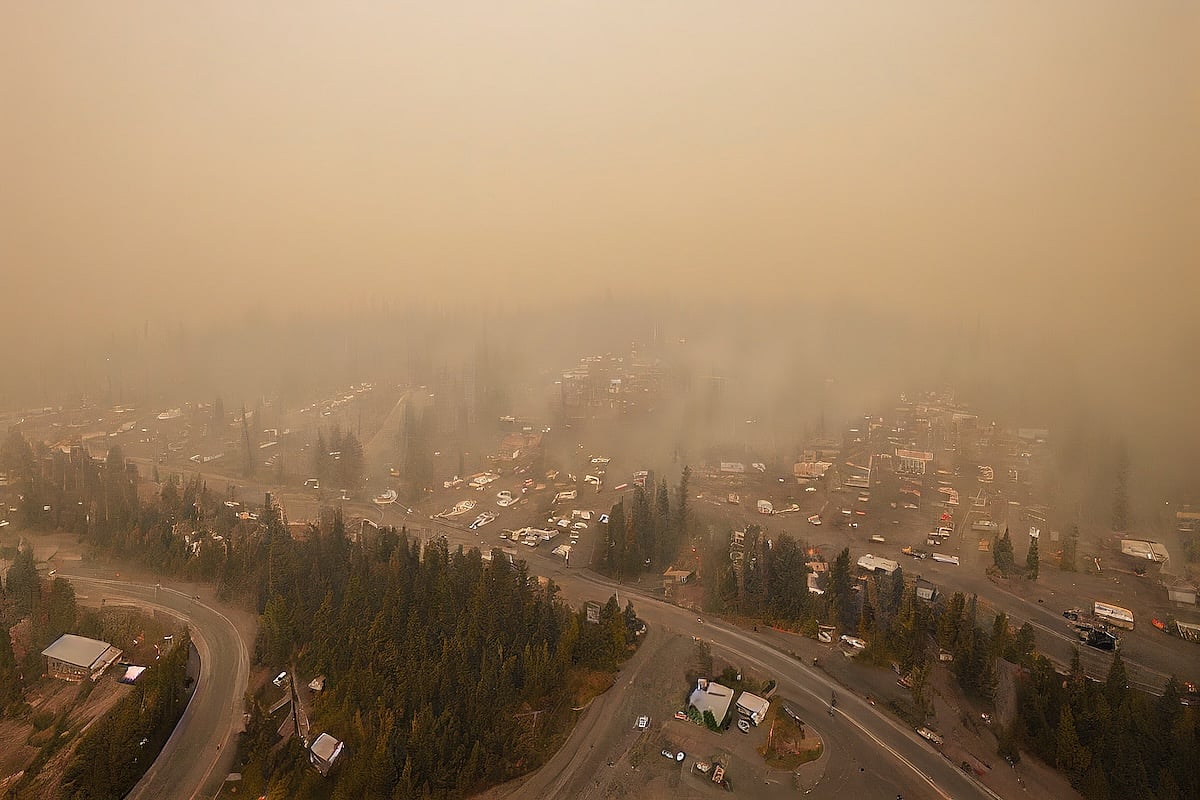Due to a recent change in our pharmacy software system, the process for submitting refill requests online has now changed.
Our previous mobile app and your current login credentials will no longer work.
Please click the Patient Portal tab to begin the new process.
Thank you for your patience during this transition.
Get Healthy!

- Dennis Thompson
- Posted July 3, 2025
Wildfire Smoke Linked To Heart Failure Risk
Wildfire smoke might increase a person’s risk of developing heart failure, a new study suggests.
People had a 1.4% higher risk of heart failure for every 1 microgram per cubic meter increase in their exposure to particle pollution from wildfires, researchers report in the Journal of the American College of Cardiology.
That might not sound like a lot, but researchers say this translates into more than 20,000 additional heart failure cases each year among U.S. older adults.
“Over time, the average smoke pollution someone breathes in can increase very slightly — but that slight increase matters a lot for heart health, especially for vulnerable populations,” said lead investigator Hua Hao, a research scientist at the Emory University Rollins School of Public Health in Atlanta.
“Even a small individual risk translates into a large public health impact,” Hao added in a news release.
Currently, national air quality standards limit particle pollution to an average 9 micrograms for every cubic meter of air over the course of a year, according to the Environmental Protection Agency.
During the 2020 wildfire season, particle pollution in Oregon leapt from an average 7.7 micrograms per cubic meter to 63.5 micrograms per cubic meter, a study by the U.S. Centers for Disease Control and Prevention found.
For the new study, researchers tracked the heart health of about 22 million Medicare patients based on their exposure to particle pollution from wildfires between 2007 and 2018.
They found that as levels of air pollution from wildfire smoke increased over a two-year period, so too did people’s risk of developing heart failure.
“We also found that the association between smoke (particle pollution) and heart failure was stronger in women, Medicaid-eligible individuals and those living in lower income areas, indicating higher susceptibility,” Hao said.
Particle pollution involves tiny bits of matter released by combustion that are less that 2.5 micrometers in diameter, the EPA says. By comparison, a human hair is 70 micrometers.
Precisely how exposure to particulate pollution from wildfire smoke increases risk for heart failure is not fully understood yet, but these particles can penetrate deep into the lungs and even enter the bloodstream, posing serious health risks to those exposed, researchers said.
The study also found that wildfire smoke is potentially more toxic than the particle pollution emitted by cars and power plants. Those sources of particle pollution only increased people’s risk of heart failure by 0.5%, results show.
“By century's end, under a high greenhouse gas emission scenario, we expect 74% of the globe to experience substantial increases in the length of wildfire season and the frequency of wildfire events,” Joan Casey, an associate professor of epidemiology at the University of Washington in Seattle, said in a news release.
“This is already the case in the United States, where wildfire smoke days, once rare, now happen several times per year,” added Casey, who wrote an editorial accompanying the new study but was not involved in the research.
The study “highlights a growing and unappreciated threat to heart health,” Dr. Harlan Krumholz, the journal’s editor-in-chief, said in a news release.
“As wildfire smoke becomes more frequent and intense, we are learning that even small, long-term exposures can raise the risk of heart failure, especially among the most vulnerable,” continued Krumholz, who was not involved in the research. “These findings elevate the urgency of protecting communities through both environmental policy and health care preparedness.”
More information
The Environmental Protection Agency has more on particle pollution.
SOURCE: American College of Cardiology, news release, June 23, 2025







